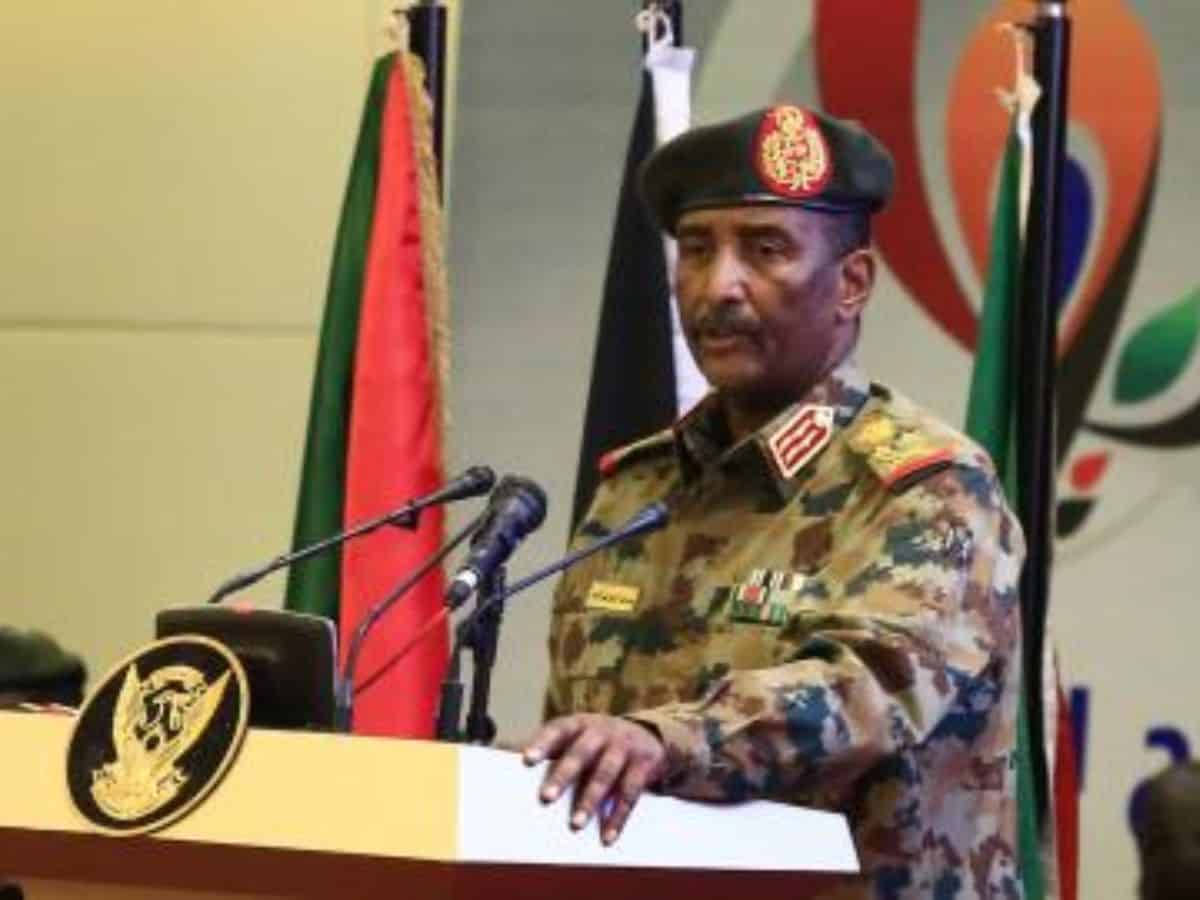
Khartoum: General Commander of the Sudanese Armed Forces (SAF), Abdel Fattah Al-Burhan has started running state affairs in his other capacity as chairman of the Transitional Sovereign Council from Port Sudan, the capital city of the Red Sea State, amid increasing speculations that he intends to form a caretaker government, or a war government amid the ongoing military conflict.
In his first speech since the violent conflict broke out between the SAF and the paramilitary Rapid Support Forces (RSF) on April 15, Al-Burhan closed the door to any political settlement with the latter, reports Xinhua news agency.
Addressing the soldiers of Flamingo naval base in the military area of the Red Sea region on Monday, Al-Burhan said that “there will be no agreement with any party that betrayed the Sudanese people, and the efforts will be focused on defeating the enemy”.
Al-Burhan’s remarks came as if in response to an initiative proposed by the RSF Commander Mohamed Hamdan Dagalo on Sunday.
Dagalo calls for reaching a long-term cease-fire agreement and forming a democratic, civil government on the basis of fair and free elections at all levels.
Sudanese media on Monday night expected that Al-Burhan would issue a decision to form a war government in place of the current interim government.
Sudan Today News portal quoted informed sources as saying that Al-Burhan is heading to form “a war government”, which is expected to be announced in the coming days and headquartered in Port Sudan.
Meanwhile, Sudanese politicians and analysts have expressed different opinions regarding the establishment of a war government. While some regarded the move as practical, others believed it would further complicate the situation.
“There are about 14 safe and stable Sudanese states, and therefore, there must be a government to run the country’s affairs under the current situation,” Abdel-Rahim Al-Sunni, a Sudanese political analyst, told Xinhua.
“The impact of the war, the collapsed economic situation, and the current security condition require a war government of competence and experience,” he added.
Amjad Farid, an advisor to former Prime Minister Abdalla Hamdok, said millions of Sudanese people remained in the country need an effective body to run their health, education, food and security affairs.
“This proposed government to be formed is not a political government, but a government of a technical nature,” Farid said on the social media platform X, previously known as Twitter.
In contrast, the Sudan People’s Liberation Movement and the opposition coalition Forces of Freedom and Change (FFC) warned that forming a new government would deepen national divisions, cautioning that it would lead to the establishment of another parallel authority.
Ibrahim al-Mirghani, a leading figure in FFC, further suggested on his X page that “all parties should work to stop the clashes first before seeking to form a government.”
In the meantime, Mohamed Kabbashi, a professor of political science at Alzaiem Alazhari University in Khartoum, on Monday told Xinhua that the time is not suitable to form an emergency government, citing “complications created by the war that cannot be surpassed by forming a war government”.
The violence had so far killed over 3,000 people killed and injured more than 6,000 others, according to the Sudanese Health Ministry.
More than 4.5 million people have been displaced inside and outside Sudan due to the conflict, according to the UN.

